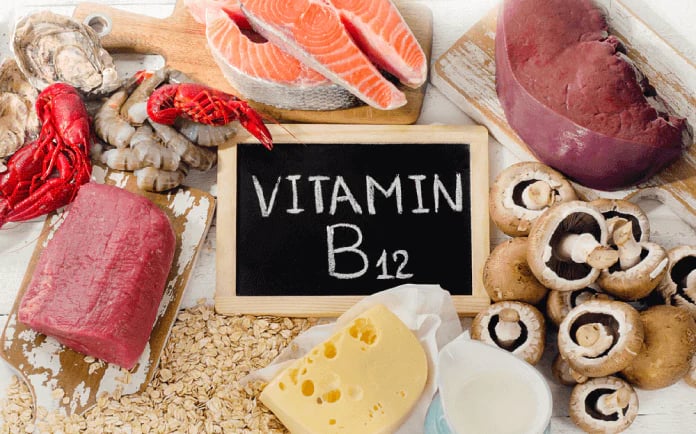Vitamin B12 Deficiency
All you need to know about Vitamin B12 deficiency.
Preeti Sinha
9/24/20233 min read


Vitamin B12, also known as cobalamin, is a crucial nutrient that plays a pivotal role in maintaining various bodily functions. Despite its significance, many people underestimate the importance of vitamin B12 until they experience the adverse effects of its deficiency. In this blog, we will explore the importance of vitamin B12, the common signs and symptoms of deficiency, its causes, and how to address and prevent B12 deficiency.
The Role of Vitamin B12
Vitamin B12 is a water-soluble vitamin that is essential for several key processes in the body:
1. Red Blood Cell Formation: Vitamin B12 is necessary for the production of healthy red blood cells. A deficiency can lead to a type of anemia called pernicious anemia, which results in fatigue, weakness, and pale skin.
2. Neurological Function: B12 is critical for maintaining a healthy nervous system. It helps in the formation of myelin, a protective sheath around nerves. Deficiency can lead to neurological symptoms such as numbness, tingling, memory problems, and even difficulty with coordination.
3. DNA Synthesis: B12 is involved in the synthesis of DNA, the genetic material of cells. It's crucial for cell division and growth.
4. Energy Production: Vitamin B12 aids in converting food into energy, which is why its deficiency can lead to fatigue and weakness.
Signs and Symptoms of Vitamin B12 Deficiency
Recognizing the signs and symptoms of B12 deficiency is crucial for early intervention. Some common indicators include:
1. Fatigue: Feeling extremely tired and lacking energy is a common early symptom of B12 deficiency.
2. Weakness: Muscle weakness can be a result of reduced red blood cell production.
3. Pale or Jaundiced Skin: Anemia associated with B12 deficiency can lead to pale or yellowish skin.
4. Numbness and Tingling: Sensations of pins and needles, particularly in the hands and feet, are often experienced.
5. Difficulty Walking and Coordination Problems: Severe B12 deficiency can affect balance and coordination.
6. Cognitive Impairment: Memory problems, confusion, and difficulty concentrating can occur.
7. Mouth and Tongue Changes: Symptoms may include glossitis (inflammation of the tongue), mouth ulcers, or a sore and red tongue.
Causes of Vitamin B12 Deficiency
Understanding the causes of B12 deficiency can help in its prevention. Common reasons include:
1. Dietary Insufficiency: Vitamin B12 is primarily found in animal-based foods such as meat, fish, dairy, and eggs. Vegans and strict vegetarians may be at risk of deficiency if they don't consume B12-fortified foods or supplements.
2. Malabsorption: Conditions like pernicious anemia, celiac disease, Crohn's disease, and atrophic gastritis can hinder the body's ability to absorb B12 from food.
3. Medications: Certain medications, such as proton pump inhibitors and metformin, can interfere with B12 absorption.
4. Aging: As people age, their ability to absorb B12 from food may decrease, making them more susceptible to deficiency.
Addressing and Preventing B12 Deficiency
If you suspect a B12 deficiency, it's essential to consult a healthcare professional for diagnosis and treatment. Treatment typically involves B12 supplementation through injections or oral supplements.
To prevent B12 deficiency:
1. Maintain a Balanced Diet: Include sources of B12-rich foods in your diet, such as meat, fish, dairy, and eggs.
2. Consider Supplements: If you're at risk of deficiency due to dietary restrictions or medical conditions, consult your healthcare provider about B12 supplements.
3. Regular Health Check-ups: Routine blood tests can help identify deficiencies early, especially for older adults and individuals with underlying health conditions.
To sum up
Vitamin B12 is a vital nutrient that plays a fundamental role in various bodily functions. Recognizing the signs of B12 deficiency and addressing it promptly through dietary changes or supplementation is essential for maintaining good health and preventing long-term complications. So, take care of your B12 intake, and your body will thank you with vibrant energy and well-being.
